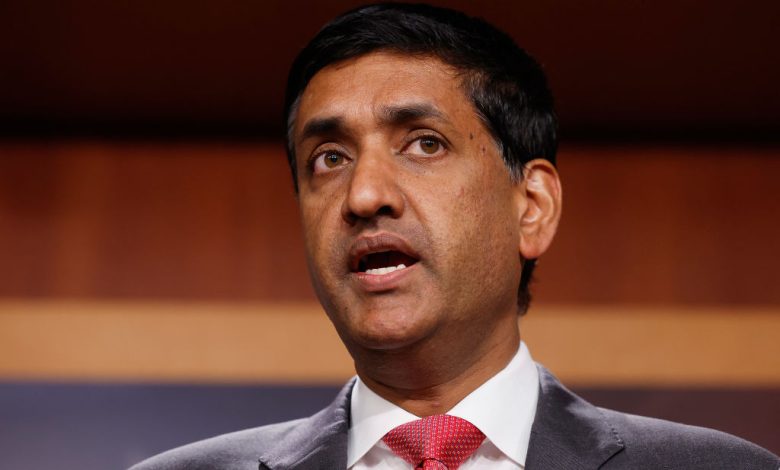This California Congressman Aims To Help HBCU Students Land High-Paying Jobs In Technology


Rep. Ro Khanna of California is on a mission to connect students at Historically Black Colleges and Universities (HBCUs) with high-paying tech jobs at leading Silicon Valley companies.
According to WLBT Channel 3 News, Khanna has partnered with Jackson State University (JSU) in Jackson, MS, to ensure that Black Southerners are included in the digital revolution — particularly in AI and advanced technology fields.
“There are ambitious students at our HBCUs, but we need to provide the capital to them so that they can realize their dreams,” Khanna said, WLBT reported.
“I represent Silicon Valley – $14 trillion of market value. I’ve got Apple, Google, Tesla, Nvidia, and Broadcom – all trillion dollar companies in my district,” he added. “And we need to create opportunities for the Black South to have high-paying technology jobs.”
On Thursday, Aug. 7, 2025, Khanna spoke at the Smith Robertson Museum to highlight TechWise, a Google-funded workforce program he is currently helping to bring to HBCUs nationwide, the Mississippi Clarion Ledger reported. The free program, launched by education technology company TalentSprint, connects students with tech experts and provides a stipend during their work on tech development projects.
“What we did was create a program to create technology jobs and training across the country and we partnered with about 15 different HBCUs,” Khanna said, per the Clarion Ledger. “The students participate in a 10-hour per week, 18-month course and then those kids get a $65,000 to $85,000 job in technology, but they also learn and are able to be mentors to future students in the program.”
Since joining TechWise three years ago, JSU has had 35 students graduate from the program, with another 12 currently enrolled in its 10-month cycle of mentorship, project development, and presentations, WLBT Channel 3 News reports.
“Those students end up getting some high-paying tech jobs,” said Almesha Campbell, JSU’s vice president for research and economic development, WLBT reported. “They have skills they won’t necessarily get in the classroom. So, it’s more of a workforce development opportunity that will prepare them for those tech jobs immediately after graduation.”
As AFROTECH™ previously told you, a quarter of Black science, technology, engineering, and math (STEM) graduates come from HBCUs, which also produce 20% of all Black undergraduates. Despite their impact, Black students earn just 7% of STEM degrees nationwide, recent research shows.
The challenges begin in K-12 education. Only half of U.S. public schools serving Black students offer calculus, and just 63% offer physics. While Black and Latino students make up 37% of high schoolers, only 18% earn qualifying advanced placement (AP) scores — fueling doubts about success in STEM fields.
According to the Clarion Ledger, Khanna promotes a “new economic patriotism,” focused on building wealth in underserved communities, particularly in Black America. As a leading progressive, his website notes that he supports a well-rounded, skill-based education — emphasizing special education, the arts, and STEM programs — to help students compete globally.
“We’re producing more wealth than we ever have in the history of this country and only 1 or 2% of Black Americans are getting venture capital,” Khanna said, per the Clarion Ledger. “We excluded the Black community from the agricultural revolution, we excluded the Black community from a lot of the industrial revolution. Shame on us if the Black community is excluded from the digital revolution.”




